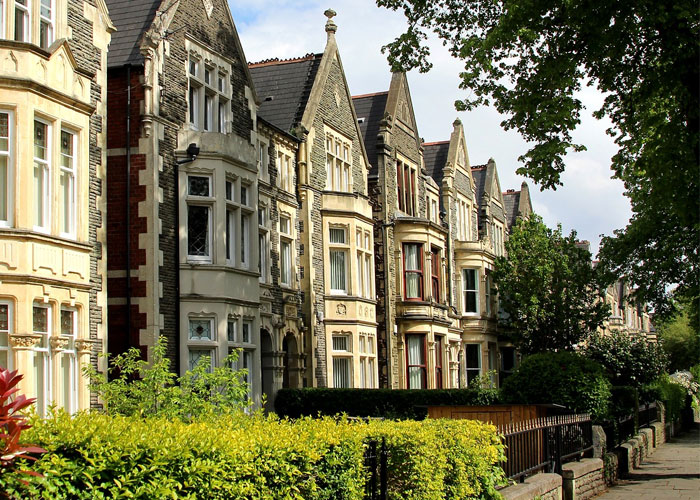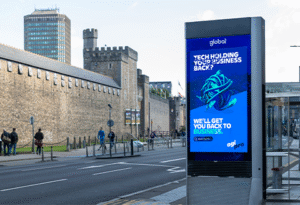Lockdown has caused people in Cardiff to like their homes more!

Ring, whose mission is to make neighbourhoods safer, has today released a new report: ‘Home: A New Meaning’. The home security company examines changing consumer attitudes towards their homes, with a report providing insight into how this sudden change in lifestyle has drastically impacted the meaning behind the word ‘home’.
Surprisingly, the research reveals that over half of people in Cardiff (52%) are viewing their homes in a more positive light since the initial stages of lockdown.
Exploring key home trends of 2020 and the recent impact of lockdown, the report also seeks to understand what the future of the ‘home’ might mean for consumers across the U.K. It includes commentary from interior designer Samantha Watkins McRae, as well as insight from Professor Dale Southerton, an expert in the field of Sociology of Consumption and Organisation at the University of Bristol.
Defining the Home
The meaning of home has undoubtedly taken on a new significance in recent months. It is surprising that even with an unparalleled amount of time spent at home, there has been a positive shift in sentiment towards the home.
For many, home plays an emotional role in their lives, as 53% of Cardiff consumers think about the home in terms of a place that is home to all their belongings and significant items and memories that they hold within them. 51% of people in Cardiff define home to be the space they share with family or loved ones.
Considering this, it’s perhaps not surprising that 64%* of Cardiff consumers agree that the home acts as an extension of themselves, increasing the importance in the appearance of their home.
Changes to our Homes Now and in the Future
The function of the home has also changed, as 47% of consumers in Cardiff have adapted their homes to serve new purposes, with 12% having converted their living rooms or garage/garden spaces into work areas or other different uses. Other ways in which consumers in Cardiff are changing the function of their homes includes using different rooms as home gyms (15%), and using their living room as a hub for small businesses or their garage as a production hub for business/creative projects (12%).
This correlates with the general emergence in 2020 of more multi-use spaces, such as spare bedrooms that convert into home offices, or the purchasing of modular furniture like stow-away beds and tables.
Wider home improvements have also been popular, with decluttering the most popular lockdown activity – 60% say they have had an extensive clear out over the last six months. As well as buying house plants and adding more greenery (23%), investing in smart home technology (9%) was also a key change during lockdown.
Lockdown has inspired a city of consumers wanting to protect their home in Cardiff (48%), with 30% saying they have given more thought to home appearance and 18% considering its security. Smart home technology has been key, as 19% of people in Cardiff have been using video doorbells for contactless delivery on their doorstep or security cameras for communicating with elderly relatives during lockdown.
Dave Ward, Managing Director of Ring for Europe comments: “At Ring, we know the meaning of home is so much more than just four walls and this has never been more apparent than over the past couple of months. After what has been a difficult time for so many, our research shows that people appreciate the spaces they call home now more than ever. Time spent investing in home improvements and adapting their home space has made them more aware of the value their homes hold. How to keep homes secure therefore remains an important consideration for consumers and one we predict will be part of the longer-term changes as we move forward.”
People in Cardiff are also now reassessing how they can adapt their home space for the future (16%). This is likely to be most prevalent among house hunters as lockdown has shifted priorities for what consumers want from their home space. Factors such as an outdoor space (34%), quiet neighbours to help with concentration during the day (22%) and a spare bedroom for storage and other activities (16%) are now all crucial considerations.
“We all face a unique set of challenges as we’ve all been plunged into a new way of working – from video calls to solo tea breaks. We therefore need to come up with solutions as this working from home trend continues.”
“It’s important to find a way to fully switch off at the end of a working day – and that’s especially true when you’re working from home,” Toni Radzihovska, Head of Alexa Smart Home EU, at Amazon explains. “From discovering new music to setting those evening lights ready to relax, smart home technology can help separate your work time from your play time.”
Ring’s latest report takes a closer look at the impact of lockdown and what this means for our future homes. For more information about Ring and to download the full report, visit the Ring blog.





